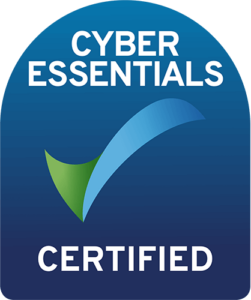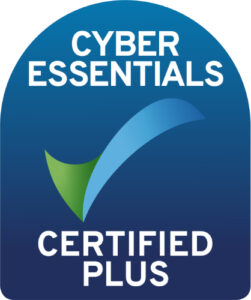Thinc insights
If your business is growing, it might be time to look at QuickBooks alternatives. Here are some of the clues to watch out for.
Why would an SME seek QuickBooks alternatives? If you’re using this popular solution, it’s likely served you well so far. But will it scale with you as your business grows?
QuickBooks is a very popular accounting software package that many small businesses rely on to keep on top of their finances. As a step up from something more basic like using Excel spreadsheets to manage finances, it’s a major improvement, and, for many businesses, it may be all they ever need.
But as companies grow larger and their financial requirements grow more complex, they may start to feel that QuickBooks isn’t keeping up with their needs.
If you’re getting to the point where your business is growing and you’re wondering when you should stop using QuickBooks, then it’s time to see what the evidence is telling you. We’ve put together a list of the top seven things to look out for as well as some suggestions for replacements for QuickBooks.
When you expand your business to run multiple different entities, accounting can quickly become very complex – especially if you’re working internationally, having to navigate different currencies and tax regimes. You’ll need to be able to consolidate your accounts into one place and create transactions between your own entities – and QuickBooks doesn’t allow this.
Do you need native capability for a multi-entity business? How about the power to run everything from one streamlined place? If the answer is yes, you’ll a need more advanced accounting software system.
Even though QuickBooks can be a powerful tool, it still requires a lot of manual data entry from other sources such as spreadsheets. While QuickBooks should streamline your accounting tasks, most businesses using it will still find they end up relying on a web of spreadsheets to keep on top of all your data. It can be time-consuming to have to dive in and out of various sources to find the numbers you need and it’s also more error-prone.
To streamline and safeguard these processes, you’ll need to be able to import data en masse and have systems integrated for automatic data uploads. For this, you might need to look elsewhere.
As it’s mainly designed to serve smaller businesses, QuickBooks has limits on the amount of storage you can use and can’t be expanded to more than 30 users. This is one of the main reasons that most big companies don’t use QuickBooks.
If your business is expanding beyond these limits, you’ll have no choice but to look for alternatives to QuickBooks.
As far as accounting and bookkeeping software goes, QuickBooks can be a powerful tool. But its capabilities beyond accounting are very limited. If you need to additional control over tasks such as managing customer relationships or supply chains, you’ll have to either work with a disparate set of systems or get a more complete solution.
Some more advanced finance software packages such as Sage Intacct offer integration that allow the user to expand their capabilities with add-ons to create a single place to manage all your business needs.
QuickBooks’ inventory management tools are one of its biggest drawbacks. This is an especially big problem if you’re working with multiple warehouses as QuickBooks doesn’t let you track inventory by location. This is where more advanced software will give far greater visibility and control over your inventory, including tracking items by location.
QuickBooks is designed to manage the day-to-day accounting and bookkeeping needs of small and medium sized businesses but once you start to get into more advanced ‘big-picture’ project accounting, you’ll quickly start to see its limits. It offers basic job costing but doesn’t provide detailed project tracking, budgeting, multi-level task management, or real-time reporting.
Once you’ve decided that QuickBooks is no longer able to support your business, it’s time to start considering next steps. Many businesses will take the step up to a full Enterprise Resource Planning (ERP) system such as SAP Business One or Sage 200, as this gives you not only more advanced financials but also a whole range of other tools to manage all aspects of your business in one easy place.
The other option would be to move to a more advanced finance-focused system such as Sage Intacct. This gives you best-in-class financial capabilities on a cloud-based system, with the power to upgrade with extra add-ons to give you much more functionality. This brings it much closer to being a fully fledged ERP system that you can use as the digital core of your business.
But of course, if you’re using QuickBooks, accounting will be highest up on your list of needs in a new solution. So let’s see how Sage Intacct stacks up.
QuickBooks is designed more for basic online bookkeeping and accounting for smaller businesses whereas Sage Intacct is much more suited to the advanced financial needs of larger businesses.
As such, QuickBooks’ features are simpler, giving you control over things like expense tracking, invoicing, and payroll management. This means that QuickBooks also comes in at a lower price than Intacct and is generally considered easier to use.
Sage Intacct brings a range of advanced financial features, including multi-entity consolidations and real-time financial reporting, meaning it gives you the ability to do more high-level project accounting, rather than just day-to-day finances. It’s also more scalable and can be customised with add-ons to create a more complete business solution.
If you feel like you’ve outgrown QuickBooks and want to explore your next steps, we’re here to help. Our experts have over 30 years of experience helping businesses use technology to unlock their next level of growth – just get in touch for a no-obligation chat about the best options for your business.
Related Topics
Get in touch


Enter your details into the contact form below, and one of our experts will be in touch to arrange a time to speak.
If you’re an existing customer looking for support, please e-mail servicedesk@wearethinc.com, or visit our support page where you can download our remote support apps.